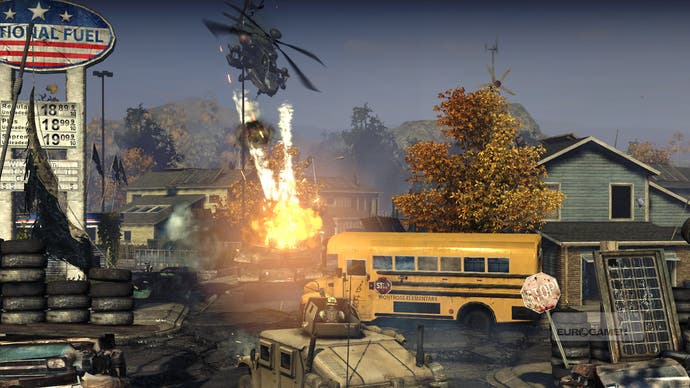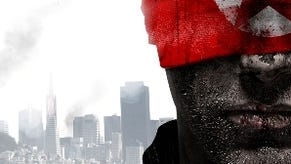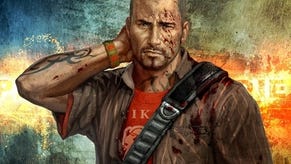Homefront
Seoul mates?
It's all over so quickly that you probably won't have time to let such foibles bother you. The problem isn't so much that Homefront's seven stages are too short, but that they spend too much of their meagre time treading water with predictable, generic encounters. You could easily stretch it out to eight hours or so, but it's all so inconsequential; what Homefront needs most is direction rather than length.
Despite the potential of staging FPS battles in familiar suburban locations, the game quickly falls into a rut familiar from too many of its genre peers. There are stealthy sniper bits. There are turret sections. There's a scramble beneath the girders of the Golden Gate bridge which is a virtual redux of Half-Life 2.
But there's no personality and there are no moments: none of those perfect collisions between concept and execution which give you that fist-pump rush that a good shooter needs. You're always aware that this is a pale echo of a more successful formula.
Single-player campaigns are fast becoming a quaint anachronism though, and if this offering feels more vestigial than most, it's largely because the genre itself, particularly this brand of modern military shooter, is ever more interested in the long-term lure of multiplayer. Here, at least, Homefront proves more capable.
Maps are broad and varied, with no end of pathways to discover. Whether you prefer holing up in building interiors, crawling through scrub or charging down the middle, all guns blazing, the game accommodates everyone without ever playing favourites. Vehicles are simple to control, effective enough to be worthwhile, but fragile enough that an enemy tank won't bring the match to a dispiriting halt. There's a satisfying balance, and the fully customisable load-outs mean that it's easy to find a combat role that suits your style of play.

More noteworthy are two reasonably fresh ideas that KAOS Studio has stirred in. Battle Points are the in-match currency that you accrue for successful play. Separate to your XP, they must be cashed in if you want to use any of the game's more interesting gadgets. Want to spawn in a vehicle? Launch a drone? Whip out an RPG? They all require Battle Points.
The most obvious benefit is that this system tips the balance away from the Call of Duty model where the best and longest-serving players have a veritable arsenal of destruction at their command while new players go into battle armed with a toothpick and a scowl. Battle Points scale it back to focus on the match at hand, so any player capable of downing a few enemies or assisting in an objective will gain access to something cool.
The second worthwhile idea is Battle Commander. This game mode puts you under the command of an unseen taskmaster, who will highlight notable enemy targets. It's a way of taking the idea of "kill streaks" and inverting them; the better you play, the more attention you attract. There are alerts for individual soldiers, vehicles, even remote drones. Keep racking up kills and the enemy commander will direct more and more of the opposing team to your location - and they'll all want some of the XP bounty for taking you down.

The impact of these two ideas is noticeable and beneficial, but still the sum of the experience isn't different enough to the pack leaders to stand out, nor is it polished enough to stand alongside them. It's a decent multiplayer offering, but is unlikely to lure dedicated players away from the dominant franchises and their enormous and enthusiastic communities for long.
Taken as a whole, the online action is just enough to balance out the mediocrity of the single-player campaign. But, ironically, Homefront's place in the FPS genre is an inversion of its own narrative fantasy. In the game's fiction, Korea is the underdog that takes on the American giant and wins; in reality, Homefront similarly hurls everything it has at the FPS behemoths in its path, but can barely scuff their armour.
Homefront floats in the limbo between "not bad" and "pretty good", and is hamstrung by a single-player element that feels like a half-hearted obligation. What's most disappointing is that Homefront wanted so much to join COD and Battlefield at the top of the genre, but has ended up as merely a weekend timewaster for players waiting for the next shooter fix.



